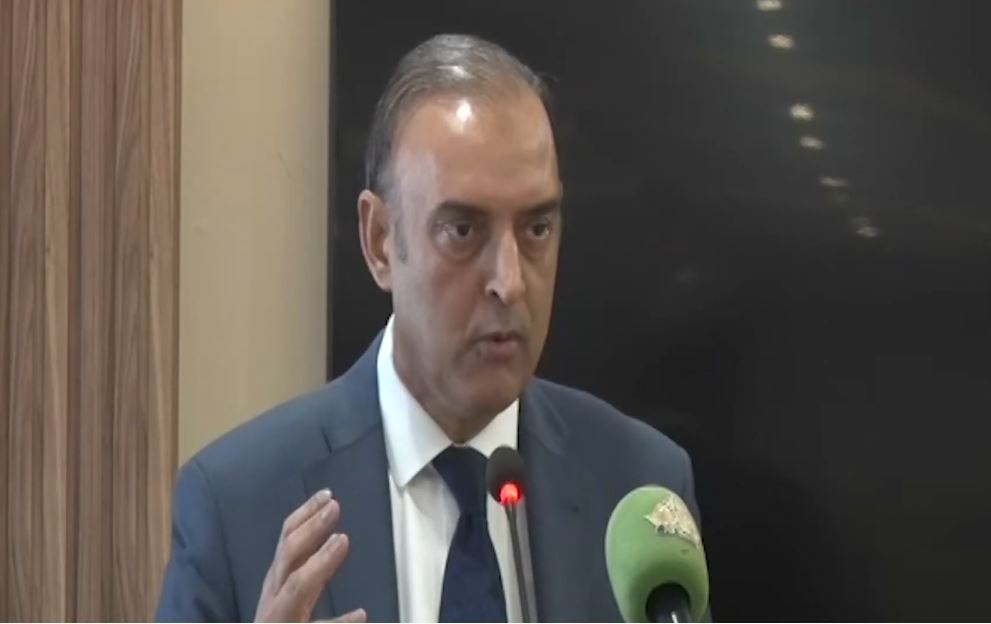The Governor of the State Bank of Pakistan (SBP), Jameel Ahmad, said that inflation has declined sharply and is projected to remain within the government’s target range of 5 to 7% over the medium term, although recent floods may exert temporary upward pressure on prices.
Addressing the 9th Annual Microfinance Conference on Thursday, organised by the Pakistan Microfinance Network under the theme “Renaissance of Microfinance,” Governor Ahmad reiterated that achieving inclusive economic growth requires durable macroeconomic stability that uplifts communities and ensures prosperity for all. He reaffirmed the central bank’s commitment to expanding financial inclusion and narrowing the gender gap.
The governor said that the policy and regulatory measures implemented in recent years have established a period of macroeconomic stability, reflected in significant improvements in key economic indicators.
He noted the remarkable growth in Pakistan’s foreign exchange reserves since February 2023 and strategic interbank purchases, which have strengthened reserves and enabled the government to make timely debt repayments without borrowing at higher interest rates.
Governor Ahmad emphasised that the SBP’s monetary policy and regulatory efforts have been complemented by sustained fiscal consolidation by the government, helping to contain demand-side pressures on inflation and the external account.
He pointed out that Pakistan’s debt dynamics have considerably improved over the past three years and that economic growth is on track to recover and is expected to accelerate further in the current fiscal year. Reflecting on two decades of progress, the Governor reaffirmed SBP’s commitment to microfinance as a driver of inclusive growth and explained that the central bank has revised the Prudential Regulations for Microfinance Banks, transitioning from a rules-based to a principles-based approach. These reforms have removed restrictions on microenterprise lending, allowed greater operational flexibility, introduced a dedicated Agriculture and Livestock loan category, and increased loan limits up to Rs 5 million for agriculture, microenterprise, and housing loans, and Rs 500,000 for general loans.
He further highlighted the launch of the Climate Risk Fund under the World Bank-funded Resilient and Accessible Microfinance Project, which aims to support two million borrowers through liquidity facilities to mitigate the impact of climate shocks.
In collaboration with the government, SBP has also introduced a Risk Coverage Scheme for Small Farmers and Underserved Areas, providing 10% first-loss coverage and operational incentives to expand lending in underserved regions such as Balochistan, Khyber-Pakhtunkhwa, Azad Jammu & Kashmir, and Gilgit-Baltistan.
Governor Ahmad underscored the progress under the National Financial Inclusion Strategy (NFIS) 2028, noting that financial inclusion rose from 47% in 2018 to 67% in June 2025, while the gender gap in financial access narrowed from 47% to 30%. He credited transformative digital initiatives including Raast, Asaan Mobile Account, Roshan Digital Account, the launch of Digital Banks, and the Banking on Equality Policy. He also reiterated the NFIS 2028 targets, which aim to expand financial inclusion in Pakistan to 75% and reduce the gender gap to 25% by 2028.
The Governor urged microfinance institutions to strengthen risk management practices by utilizing alternative data sources, digital tools for credit scoring, conducting internal audits, training staff to prevent fraud, and maintaining adequate liquidity buffers. He emphasized that good corporate governance, transparent communication, and climate-risk mapping are essential to fostering long-term sustainability.
Discover more from Brackly News
Subscribe to get the latest posts sent to your email.



